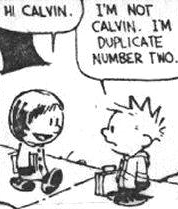She was the only high school teacher whom I ever approached for help. She was tough. She was not an angel or a savior, parent or confidante. Had she offered to be one, I would have rejected it. Those promises had been made and broken, and now it was too late for more. She and I never discussed foster care, the Leonards, or my mother. When I did badly on a paper or answered a question poorly in class, she was deadly honest but kind. She was the first to teach me that I could disappoint someone without losing her.
Finally, there were the little reminders of Hope that I looked for in nearly everyone. The two of them looked nothing alike. Mrs. Ross was tall and blonde. Hope was petite and dark. Yet both women snapped out retorts that left their opponents sputtering. Both challenged the world. Both seemed braver that I could ever be.
When she strolled into class on our first day of twelfth grade, Mrs. Ross had promised that we would - as we had in earlier English classes - read books and poems, only this time a little better. Some of what she taught appealed to me by accident. When we read As I lay Dying, she never knew that the story of a mother who had died and the son who could still hear crying in the night would mean so much to a shy boy sitting at the edge of her class. When we read Catch-22, she never knew that the same boy had already understood that heroes may not be as pure as we like, that they may not act or appear as we expect. She taught me poetry, especially her favorite poem about a pitiful and proper middle-aged man named J. Alfred Prufrock, who imagined himself lingering on the floor of the sea, listening to the distant songs of mermaids who sang to others but refused to sing to him. Mrs. Ross never told us what to do with our lives, in high school or beyond. Instead, she warned about old and frightened Prufrock, a man who had wasted his life in silence, too frightened to challenge the world, too timid to demand his place in it.
Mrs. Ross never denied that life could be horribly unfair. Occasionally she even implied that she thought it would be for some of us. She merely claimed that unfairness need not be the end of it. She believed that words mattered, that they could persuade, that now and again they could make us better than what our nature might have us be. Fair or not, life could still be something important, something meaningful. On the last day that I saw her, she handed me a note, quoting from the poem that she loved. Reminding me that the future could hold more than empty silence, she wrote that the mermaids who had never sung to Mr. Prufrock would someday sing to me.
I believed her."
Written by Andrew Bridge.
Labels: adoption, What I'm reading
































